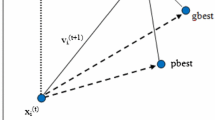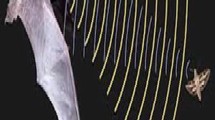Abstract
This paper proposes novel heuristic algorithm called gravitational search algorithm (GSA) to speech enhancement. Stochastic and heuristic algorithms like particle swarm optimization (PSO) and some of its variants have been adapted to the field of speech enhancement in recent years. Although standard PSO (SPSO) finds good solutions, it suffers from the premature convergence by getting trapped into local optimum. In order to increase the diversity in search space and to improve the local searching capability, another recently developed heuristic algorithm GSA is proposed to speech enhancement in this paper. GSA is mainly constructed on the basis of law of gravity and the notion of mass interactions .The proposed algorithm is studied for real world noise condition called babble noise, at three different input SNR levels. To the best of our knowledge, there is no analysis about the intelligibility of enhanced speech using optimization techniques. In the present study, the proposed algorithm is compared with the standard PSO (SPSO) algorithm for dual channel speech enhancement, and the intelligibility analysis is also reported. Simulation results indicate that GSA-based algorithm outperforms the particle swarm optimization in adaptive noise cancellation with an improved speech quality and intelligibility.












Similar content being viewed by others
References
Asl, L. B., & Geravanchizadeh, M. (2010). Asexual reproduction based adaptive quantum particle swarm optimization algorithm for dual channel speech enhancement. In International conference on information science, signal processing and their applications, ISSPA, pp. 129–132.
Asl, L. B., & Geravanchizadeh, M. (2010). Dual channel speech enhancement based on stochastic optimization strategies. In International conference on information science, signal processing and their applications proceedings, ISSPA, pp. 229–232.
Asl, L. B., & Nezhad, V. M. (2010). Speech enhancement using Particle swarm optimization techniques. In International conference on measuring technology and mechatronics automation, pp. 441–444.
Asl, L. B., & Nezhad, V. M. (2010). Improved particle swarm optimization for dual-channel speech enhancement. In International conference on signal acquisition and processing, pp. 13–17.
Chan, F. T. S., & Tiawari, M. K. (2007). Swarm intelligence focus on ant and particle swarm optimization (1st ed.). I-Tech Education and Publishing.
Eberhart, R. C., & Kennady, J. (1995). A new optimizer using particles swarm theory. International symposium on micro machine and human science (pp. 39–43). Japan: Nagoya.
Hu, Y., & Loizou, P. (2006). Subjective comparison of speech enhancement algorithms. ICASSP proceedings. Toulouse, France, pp. 153–156.
http://www.speech.cs.cmu.edu/comp.speech/SectionI/Data/noisex
Krusienski, D. J. (2004). Enhanced structured stochastic global optimization algorithms for IIR and nonlinear adaptive filtering. Ph.D. Thesis, The Pennsylvania State University.
Krusicnski, D. J., & Jenkins, W. K. (2003). Adaptive filtering via particle swarm optimization. In Proceedings of 37’Asilomar conference on signals systems and computers.
Krusienski, D. J., & Jenkins, W. K. (2005). Design and performance of adaptive systems based on structured stochastic optimization strategies. Circuits and Systems Magazine, 5(1), 8–20.
Kumon, T., Iwasaki, M., Suzuki, T., Hashiyama, T., Matsui, N., & Okuma, S. (2000). Nonlinear system identification using Genetic Algorithm, Industrial Electronics Society, IECON 2000. In 26th Annual conference of the IEEE, 22–28 Oct. 2000, Vol. 4, pp. 2485–2491.
Loizou, P. C. (2007). Speech enhancement theory and practice. CRC Press.
Loizou, P. C., & Ma, J. (2011). Extending the articulation index to account for non-linear distortions introduced by noise-suppression algorithms. Journal of the Acoustical Society of America, 130(2), 986–995.
Osgouei, S. G., & Geravanchizadeh, M. (2010). Dual channel speech enhancement based on hybrid particle swarm optimization algorithm (pp. 873–877). IST: In International symposium on telecommunications proceedings.
Rashedi, E., Nezamabadi-pour, H., & Saryazdi, S. (2009). GSA: A gravitational search algorithm. Information Science, 179(13), 2232–2248.
Rix, A., Beerens, J., Hollier, M., & Hekstra, A. (2001). Perceptual evaluation of speech quality (PESQ)–A new method for speech quality assessment of telephone networks and codecs. In Proceedings of the IEEE international conference of acoustics speech, signal processing, 2, 749–752.
Ueda, T., & Suzuki, H. (1990). Performance of equalizers employing a re-training RLS algorithm for digital mobile radio communications. In 40th IEEE vehicular thechnoly conference, pp. 553–558.
White, M. S., & Flockton, S. J. (1997). Chapter in evolutionary algorithms in engineering applications. Springer.
Widrow, B., & Stearns, S. (1985). Adaptive signal processing. Englewood Cliffs, NJ: Prentice Hall.
Author information
Authors and Affiliations
Corresponding author
Rights and permissions
About this article
Cite this article
Prajna, K., Rao, G.S.B., Reddy, K.V.V.S. et al. A new approach to dual channel speech enhancement based on gravitational search algorithm (GSA). Int J Speech Technol 17, 341–351 (2014). https://doi.org/10.1007/s10772-014-9232-x
Received:
Accepted:
Published:
Issue Date:
DOI: https://doi.org/10.1007/s10772-014-9232-x




